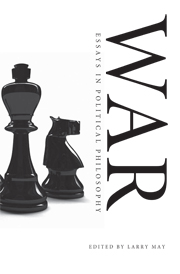Book contents
- Frontmatter
- Contents
- Contributors
- Introduction
- I HISTORICAL BACKGROUND
- II INITIATING WAR
- III WAGING WAR
- 7 Proportionality and Necessity
- 8 Collateral Damage
- 9 Weapons of Mass Destruction: Are They Morally Special?
- 10 Justifying Torture as an Act of War
- 11 On Terrorism: Definition, Defense, and Women
- IV ENDING WAR
- Bibliography
- Index
7 - Proportionality and Necessity
Published online by Cambridge University Press: 05 June 2012
- Frontmatter
- Contents
- Contributors
- Introduction
- I HISTORICAL BACKGROUND
- II INITIATING WAR
- III WAGING WAR
- 7 Proportionality and Necessity
- 8 Collateral Damage
- 9 Weapons of Mass Destruction: Are They Morally Special?
- 10 Justifying Torture as an Act of War
- 11 On Terrorism: Definition, Defense, and Women
- IV ENDING WAR
- Bibliography
- Index
Summary
Consequence Conditions
Just war theory, the traditional theory of the morality of war, is not a consequentialist theory, since it does not say a war or act in war is permissible whenever it has the best consequences. On the contrary, its jus ad bellum component, which concerns the morality of resorting to war, says a war with the best overall outcome can be wrong if it lacks a just cause, that is, will not produce a good of one of the few types, such as resisting aggression or preventing genocide, that alone can justify war. It can likewise forbid a war that is not declared by a competent authority or fought with a right intention. Similarly, the theory's jus in bello component, which concerns the morality of waging war, contains a discrimination condition that can forbid military tactics with the best outcome if they target civilians rather than only soldiers. In all these ways the theory is deontological rather than consequentialist.
But just war theory does not ignore the consequences of war and would not be credible if it did: a morally crucial fact about war is that it causes death and destruction. The theory therefore contains several conditions that forbid choices concerning war if their consequences are in some way unacceptable. The jus ad bellum insists that a war must have a reasonable hope of success in achieving its just cause and other relevant benefits; if it does not, its destructiveness is to no purpose and the war is wrong.
- Type
- Chapter
- Information
- WarEssays in Political Philosophy, pp. 127 - 144Publisher: Cambridge University PressPrint publication year: 2008
- 19
- Cited by



